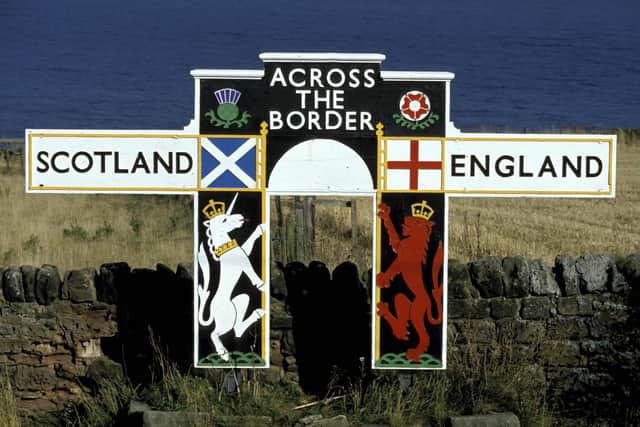Independent Scotland would always be the UK's closest friend and ally – Angus Robertson
It’s now four years since the UK left the European Union against the wishes of the overwhelming majority of the people of Scotland. The economic damage is sadly becoming clearer by the day. But it’s not just the Brexit economic hit that Scotland is suffering from: it’s the more general idea that somehow we are better placed to tackle Europe’s and the world’s great challenges, that affect us all, by less rather than more co-operation.
That goes against the outward-looking, internationalist ideals that I believe most people in Scotland hold. The Scottish Government has now set out our vision of the role Scotland could play as an independent country with direct representation for the first time, in not just the EU but other international organisations such as the United Nations.
Advertisement
Hide AdAdvertisement
Hide AdIn a new policy paper, we set out the opportunities that would be available to an independent Scotland as a state among equals in the global community. We have previously set out how Scotland is well-placed to join the EU, and how people and businesses in Scotland would benefit from restored access to the world’s largest single market and freedom of movement throughout the EU. An independent Scotland could negotiate directly and become a state party to treaties the UK has not signed or ratified like the Revised European Social Charter, which provides a range of rights on pay, workers’ rights and representation, and working hours, amongst others.


Independence would also mean that Scotland could take its place alongside the 142 UN member states which have joined the 51 founding members since 1945. We are clear about the country we want to be – providing development assistance to the most vulnerable overseas, safeguarding human rights, upholding international law and supporting and promoting Scots and Scotland around the world.
Even with the limited powers of the Scottish Parliament, we’ve been working hard to make a difference where we can, particularly on the impact of the climate and biodiversity crises in countries who have done the least to contribute to them. With the full powers of independence, this Scottish Government would commit to meet the UN target of 0.7 per cent of gross national income on official development assistance, giving us a sizeable aid budget with which to make an impact in the world’s poorest countries.
Given Scotland’s strategic position in the North Atlantic, the armed forces of an independent Scotland, supported by a modern contract for serving personnel and strong support for veterans, would also play their part to defend our national interests and contribute to global peace and security.
Democratic accountability and oversight would be a cornerstone of defence policy, so that an independent Scotland would only participate in overseas military operations that are lawful, approved by Scottish ministers and authorised by the Scottish Parliament. In line with our longstanding position on nuclear weapons, this government would also seek to remove them from Scotland in the quickest and safest way possible after independence. The defence of an independent Scotland would be built on three pillars. This government would commit to joining Nato and meeting the defence spending target of 2 per cent of GDP.
In rejoining the EU, an independent Scotland would play a full and active role in the EU’s Common Security and Defence Policy. The third pillar would be our relationship with the UK and Ireland. Regardless of Scotland’s constitutional future, the rest of the UK will always be our closest friend and ally. Independence would mark a new phase in the evolution of those relationships, with Scotland, the UK and Ireland working together as equals to cooperate on shared challenges.
I see a key part of my job as helping to attract jobs and investment into Scotland from overseas. In this I’m always struck by how warmly people view Scotland. Independence would enable Scotland to renew and strengthen its existing relationships on these islands and around the world.
It would allow us to advance an ambitious, progressive agenda and secure agreements in international forums aligned with our values, working with like-minded partners to protect and promote our interests, with the powers necessary to prosper in the global economy.
Angus Robertson is SNP MSP for Edinburgh Central and Cabinet Secretary for Constitution, External Affairs and Culture
Comments
Want to join the conversation? Please or to comment on this article.